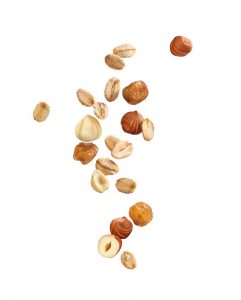 High cholesterol, and particularly high levels of harmful LDL cholesterol, contribute to heart disease and increase the risk of a heart attack. But cholesterol is largely modifiable, and changing what you eat can influence its effect.
High cholesterol, and particularly high levels of harmful LDL cholesterol, contribute to heart disease and increase the risk of a heart attack. But cholesterol is largely modifiable, and changing what you eat can influence its effect.
Food can lower cholesterol in different ways, and various foods can offer unique effects. Some use soluble fiber to bind to and remove cholesterol before it circulates in your blood.
Advertisement
Some offer polyunsaturated fats that directly lower LDL.
Others can block the body from absorbing cholesterol.
Here are some foods that can help lower cholesterol and ultimately improve heart health.
Oats: Oatmeal or cold oat-based cereals like Cheerios contain soluble fiber to help remove cholesterol. Adding a banana or some berries can help add even more fiber.
Nuts: Almonds, walnuts, peanuts (actually a legume), and other nuts may lower LDL through various means. They feature polyunsaturated fats and fiber, as well as other nutrients, to aid heart health.
Vegetable Oils: Liquid vegetable oils like canola, sunflower, safflower, or others, can help lower LDL. They are a good alternative to butter and lard when cooking.
Fatty Fish: Eating fatty fish 2-3 times per week can lower LDL too. It’s a rich source of omega-3 fatty acids that can reduce triglycerides in the blood. Some easy-to-find options include salmon, tuna, sardines, and mackerel.
Advertisement
Foods with Sterols and Stanols: Foods fortified with plant sterols and stanols can help the body block cholesterol absorption. A wide variety of foods, including margarine and orange juice, are available. Supplementing with plant sterols or stanols may also help.
Beans: Beans offer a blast of fiber that can help you reach the recommended daily 25-35 gram threshold. They help remove cholesterol and contribute to satiety, meaning you’re less likely to reach for a sugary snack after a meal, which can send LDL skyrocketing.
These aren’t all the foods that can contribute to lower cholesterol, but they offer a good starting point. Eating more unprocessed plant-based food and reducing sugar intake are the key.
